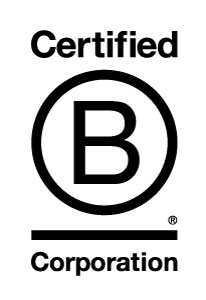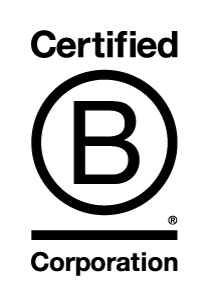We are often asked what the three letters at the end of “Casebook PBC” stand for and the answer is “Public Benefit Corporation.” But the reason for our decision to become a public benefit corporation takes a little longer to explain.
What is a Public Benefit Corporation?
A Public Benefit Corporation (PBC for short) is a corporation with a double bottom-line: not only is it required to manage its financial operations to improve returns to shareholders, but it also can incorporation the interests of multiple stakeholders (society, the community, etc…) when making decisions.
In a PBC, the charter and bylaws of the corporation create certain responsibilities to non-shareholder stakeholders. In our case, our publicly available certificate of incorporation in Delaware clearly states our organizational responsibility “to improve educational, social, health, and economic outcomes” among the most vulnerable members of society. Because we see ourselves as a different kind of vendor in the human services arena, we strive to drive such improvements and many of our more recent customers are working diligently with us to drive research that will allow everyone in the market to improve outcomes.
With a PBC structure, profit and good karma can co-exist, driving our ability to improve the whole of human services through a legal structure that is set up for a greater purpose. While there are over 4,000 public benefit corporations in the United States (including large corporations like Danone, the multi-national food vendor, and Patagonia, the American clothing company), there is a surprisingly small amount of software vendors and system integrators serving the public sector incorporated as PBCs.
To us, incorporating in that structure meant that we would give peace of mind to our customers about our intention and our alignment with their goals. We would actually love to see more of our competitors make similar legal commitments to the public good.
We see the PBC structure as a fundamental piece as to who we are and how we operate.
Why PBC over not-for-profit?
Of course, some may ask why we chose a PBC over a 501(c)(3) (not-for-profit) legal structure. This next step came from the legal challenge we encountered as we started to grow: while non-profit are primarily funded through donations and grants, they are constrained in terms of how to fund their growth through operating revenue. In our case, this meant that we were previously constrained as to how much we could improve the software we give to agencies.
And as you know, we have made commitments to improve the quality of software in this industry (believing that a rising tide lifts all boats) by investing in substantial improvements in our platform.
So after spending considerable time thinking through how to best invest in our growth, the PBC structure gave us the best of both worlds: allowing us to improve benefits for the public while becoming a growing force in realizing those improvements, creating a perfect network effect of positive outcomes.
A higher standard
With a proper legal structure in place to deliver the maximum benefit possible to human services agencies, we then set out to ensure that we had appropriate certification of our efforts. To that extent, we reached out to B Lab®, the most recognized certifying authority for people and companies using business as a force for good. B Lab® is in the business of doing public benefit audits and verifies social performance. Their view is that Certified B Corps meet a higher standard:
Certified B Corporations are businesses that meet the highest standards of verified social and environmental performance, public transparency, and legal accountability to balance profit and purpose.
Today, we are proud to announce that, after a rigorous verification process, Casebook PBC is now a Certified B Corporation®. While the PBC structure created a legal framework for us to operate under, the B-Corp certification provides a higher standard of verification, one that proves that our internal processes and external efforts are indeed aligned with what we have stated in our charter. In joining the 2,200 or so companies to have received that certification, we are driving to greater accountability in helping human services agencies.
Our commitment has always been to driving improved outcomes across the whole of human services and we hope that these new developments clarify our intent and intentions in the most non-ambiguous way we could find: together, we can reimagine software, empower people, and change lives.




